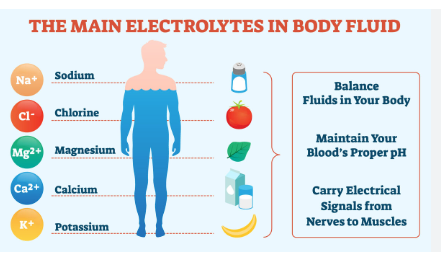
Do Electrolytes Come from Salt? Understanding the Source of Essential Minerals
Share
A common question in discussions about hydration and health is, "Do electrolytes come from salt?" This query reflects a widespread curiosity about the relationship between electrolytes, crucial for numerous bodily functions, and salt, a familiar dietary element. In this blog post, we'll clarify the connection between salt and electrolytes and explore the broader context of electrolytes in our diet.
The Connection Between Salt and Electrolytes
Electrolytes are minerals in your body that carry an electric charge. They are essential for various physiological processes, including regulating nerve and muscle function, hydrating the body, balancing blood acidity and pressure, and helping to rebuild damaged tissue. The primary electrolytes include sodium, potassium, calcium, magnesium, chloride, phosphate, and bicarbonate.
Salt as a Source of Electrolytes
Salt, specifically table salt or sodium chloride, is indeed a source of electrolytes. When salt is dissolved in fluid, it breaks down into ions of sodium and chloride, both of which are electrolytes. Here’s how they contribute:
-
Sodium: A major component of salt, sodium is one of the essential electrolytes in the body. It plays a critical role in hydration by helping to retain water in the body.
-
Chloride: Along with sodium, chloride works to maintain fluid balance and is crucial for the production of stomach acid (hydrochloric acid).
Broader Sources of Electrolytes
While salt is a well-known source of sodium and chloride, it's not the only source of electrolytes. Other electrolytes, like potassium, calcium, and magnesium, are found in various foods and are just as important for bodily functions. For instance:
- Potassium can be found in bananas, oranges, and potatoes.
- Calcium is abundant in dairy products, leafy greens, and fortified foods.
- Magnesium is present in nuts, seeds, whole grains, and leafy green vegetables.
Balancing Electrolyte Intake
It's important to balance electrolyte intake, as an excess or deficiency can lead to health issues. Here are some tips:
- Diverse Diet: A varied diet can help ensure you get a balance of all essential electrolytes.
- Mindful Salt Consumption: While salt is a source of essential electrolytes, excessive intake can lead to health problems like high blood pressure. It's important to consume salt in moderation.
- Hydration: Drinking enough water is crucial for maintaining electrolyte balance, especially during exercise or hot weather.
- Supplements: In some cases, such as intense athletic activity or specific health conditions, electrolyte supplements may be necessary to maintain balance.
Conclusion
In summary, while salt is a source of the electrolytes sodium and chloride, it's not the only source of electrolytes. A balanced diet, mindful consumption of salt, adequate hydration, and, when necessary, supplements, are all important for maintaining proper electrolyte balance.
For more information on electrolytes and healthy hydration practices, visit drinksote.com. Discover how to effectively manage your electrolyte intake for optimal health and well-being.

